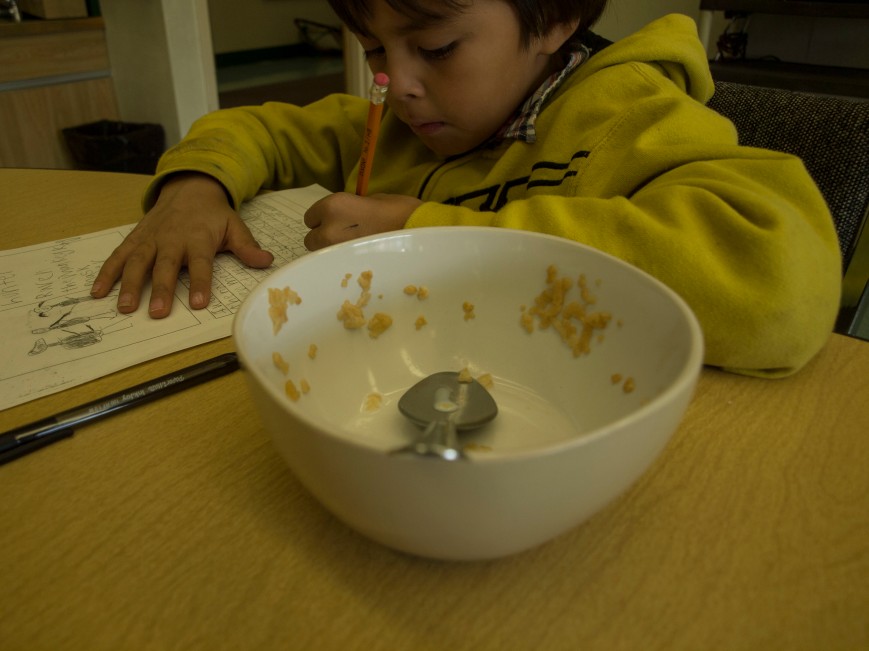
1 in 5 children in poverty
Scotland has one of the highest rates of child poverty in the UK. The latest figures from the Joseph Rowntree Foundation estimate that 1 in 5 children in Scotland live in poverty, with the figure rising to 1 in 3 in the urban centre of Glasgow. With more and more families falling into relative poverty and the numbers of working poor rising, the newly branded “JAMs” (just about managing) are, in some cases not managing, having to decide between heating their house or feeding their families.
People are affected by poverty in many different ways. For adults it can lower self-esteem, increase levels of stress, and can have consequences for mental and physical health. However, it’s sometimes forgotten that many children can feel these same effects from growing up in a family living in poverty.
In the same way as adults, many children suffer from low self-esteem and feel the invisible burden of the stigma that the label of “poverty” places on them. In addition, children affected by poverty:
- are more likely to be victims of bullying;
- tend to have lower attainment at school;
- have fewer social networks or groups of friends;
- suffer from poorer physical and mental health;
- have less chance of leaving school with a full set of qualifications and going on to further or higher education (despite the best efforts of various governments to change this); and
- are more likely than “affluent children” to spend their adulthood in poverty too.
How children understand poverty
Many children have an understanding of poverty as meaning “poor” or lacking in money. Concepts such as heating a home, building personal debt or not being able to afford to travel to work are not things they yet associate as being part of the cost of living, despite many of them seeing their own parents face these struggles on a weekly basis.
They associate poverty with foreign, particularly third world nations, as well as with homelessness, loneliness, a lack of familial support and a reliance on donations. Many children, even from the poorest backgrounds do not recognise themselves as being in poverty. This is something highlighted in research conducted by the Scottish Universities Insight Institute (SUII), which looked at child perceptions of poverty, and expressing these through alternate methods such as art.
In the study, children from schools in less affluent areas of Glasgow and Aberdeen were surveyed and many regarded notions of poverty as a distant, “third world” concept. However, when they were engaged in more creative methods, such as drama, or art, expressions of their experiences of poverty became more acute.

Engaging education professionals in the poverty discourse
In Scotland, the overarching framework of Getting it Right for Every Child (GIRFEC) is designed to bring services and professionals with whom children come into contact closer together to create a complete model of care for a child. It is interesting that in the latest commitment to tackling child poverty in Scotland there is no commitment to including teachers or education in general, in the same way as health professionals or social workers.
We know that poverty can have an adverse impact on wellbeing and on learning, and that children who live in poverty are more likely to be absent from school. However, education professionals are largely excluded from the discussions which child welfare officers, social workers, doctors and third sector colleagues are already having around the health and wellbeing of children who are living in poverty.
In a practical sense schools do, to a degree, already engage in reducing the impact of child poverty by providing financial and practical help. This could include subsidies for school meals or trips, the donation of free uniforms, breakfast clubs and tutoring after school classes. There have even been cases of individual teachers giving children clean clothes, meals or allowing them to sleep in the staff room at break and lunchtimes to allow them to catch up on sleep lost because of a disruptive lifestyle at home. However, talking about poverty with children is often neglected. This is something that academics are keen to see schools do more of – use their position to engage children in talking about poverty in order to help identify children at risk, but also to help raise the issue with other children who may not have experienced it or know what it is.
Using creative methods in schools to talk about poverty
Many academics argue that statistics on attainment can be misleading – while poverty has a significant impact, it does not correlate directly to cognitive ability. As one researcher at a seminar suggested, “just because you were born poor does not mean you were born without the ability to learn”. While there is evidence to suggest the slower development of children who live in poverty is acute in the early years, there is also evidence that the attainment gap is closing – what children in poverty miss out on is opportunity, variation and experience, and a chance to develop, rather than having lower overall cognitive function. This is one of the reasons, academics argue, it is so vital to engage teachers in wider discussions on child poverty.
For example, the vocabulary of children in poverty is often smaller in range than that of their more affluent peers. But, rather than this being the result of reduced cognitive function, researchers have found that this is primarily because they have not had the need to learn new words. Unlike children from more affluent backgrounds, they tend to remain within their community unit, using more colloquial language and a more limited number of words; they also often have less access to books or exposure to cultural experiences. That is not to say that they could not learn or have learnt all of the words that a child from a more affluent area knows; it’s just that they have not had the need or the opportunity to learn them yet. With this in mind, alternative methods of communication such as art, dance and storytelling could prove useful in explaining poverty to children, and helping them to discuss their experiences and understanding of what it means to be in poverty.

Using creative ways of communicating and engaging with children has already been found useful in helping them to talk about other issues personal to them, such as trauma or abuse. Researchers from the Scottish University Insight Institute-funded research team employed similar methods, using art, drama and play to help children express their feelings on poverty, and how it could be tackled in their communities. Children acted out scenarios, wrote poems, and created a number of pieces of tactile artwork, including sculptures and drawings. It was thought that these same methods could be used by teachers as a way to allow children to communicate their feelings about poverty and express issues relating to their own personal experiences without feeling stigmatised or singled out by other members of the class.
It is clear that the education profession has an important role, not only in helping to alleviate the effects of poverty on children through schemes like breakfast clubs, but also in a teaching and learning role. Many teachers and schools are averse to raise issues of money or poverty with children for fear of placing unnecessary distress onto children. However, sensitive and context-aware teaching on the issues around poverty should be seen as an opportunity, not a burden to teachers.
Effective discussion could go a long way to helping children to open up about experiences of poverty and also help them to be more understanding of other children who are living in poverty, reducing stigma and encouraging positive action within their local communities.
This blog reflects on research from the Scottish Universities Insight Institute and seminar participation at the Centre for Child Well-being and Protection at the University of Stirling.
Follow us on Twitter to see what developments in public and social policy are interesting our research team. If you found this article interesting, you may also like to read our other article on arts based practice with children.






You must be logged in to post a comment.